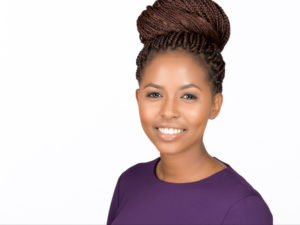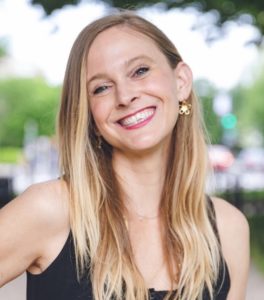If any child who is sold into commercial sex is legally defined as a victim of sex trafficking, why do we keep arresting them? We must dig deeper than just simply passing laws to prevent children from being arrested only for the charges of prostitution. To understand the complexities of how child victims of sex trafficking continue to be arrested and the often devestating consequences these arrests have on the rest of their lives, we must begin at the beginning of a child victim’s journey. This often starts with a lack of love.
“I was 13 and on the streets of D.C. My trafficker made another teen 16 year old girl show me what to do when men pulled up in their cars to buy me. It was their third night selling me downtown just blocks from the White House. I was cold, hungry and had no idea what to do. Then, the police showed up,”recalls Ashley Lowe, a survivor and colleague of mine at Karana Rising.
In 2009, the year Ashley was arrested, there were 1,036 children estimated to have been arrested for prostitution. In 2019, there were 290. Just as in Ashley’s case, many of these children have been seen by the police, social workers and courts prior to their arrest. In 2019, there were 144,160 children charged with crimes that often are indicators of child sex trafficking such as running away, truancy or simply not doing your homework. However, being seen does not always seem to lead to help.
“Police cars were everywhere and five officers started asking me questions. I was terrified. I tried to lie to the female police officer and say I was 18. There are a lot of rules when you are being sex trafficked and lying about your age is one of them. Breaking the rules could be a beating, or worse. As a child, I thought arrest was the lesser of the evils. My trafficker, a registered foster parent, had guns and other weapons at home where he, his children and three other child victims of sex trafficking victims lived.”
 Photo by Erik Mclean on Unsplash
Photo by Erik Mclean on Unsplash
In many communities, the absence of trained law enforcement and adequate social services mean thousands of children who need help are simply arrested and detained without support. This deepens their mistrust of adults that has often developed due to neglect, abuse or the loss of a parent, such as when Ashley lost her dad at a young age.
That is why in 2015, advocates and survivors like Ashley worked to pass the Justice for Victims of Trafficking Act to classify child sex trafficking as a form of child abuse, thus mandating that children who are or suspected of being victimized have their case investigated by child welfare agencies who often receive their referrals from law enforcement. Ashley now works with me at Karana Rising to train law enforcement on how to best identify child victims. According to Ashley, simple things like asking a child “are you okay” or “are you hungry” can go a long way to gaining trust and helping them to freedom.
“I spent hours in central booking where they grilled me over and over about my trafficker. I was so scared that I wouldn’t talk. The police arrested me for prostitution and sent me to a detention facility. It was humiliating. All these other girls were in there for little stuff like truancy and there I was arrested for prostitution.”
Arresting child victims of sex trafficking does not lead to their recovery. According to the 2000+ survivors I have worked with, about 50% experienced arrest before they were identified as victims and connected to services like Karana Rising. This is why having specialized screening tools to identify child victims is critical as are specialized court programs where at risk and exploited youth have a chance to work alongside a network of court and social services designed to give them a chance to be mentored and supported by trained and trusted adults.
In jail, children are severely mistreated. Once released, this leads to more running away and a deeper distrust of the very systems and people who are paid to protect them. Pimps tell their victims that if they go to the police, no one will believe them and they will just be arrested. Thus, in every arrest of a victim, we confirm the pimps statement making him (or her) more credible in the eyes of their victim. Ensnared by their trafficker, these children (and adult victims) are more at risk toward trafficking and other crimes such as the killing of the trafficker, sex buyer (read: rapist in the case of all child victims of sex trafficking) or other serious charges that can lead to life in prison.
“One day in jail, I woke up at 4:45 am to go to court to stand in front of a judge who was going to decide if I stayed in jail, went home or was sent to a treatment program for “troubled” kids. The male guard who took me to the court started telling me I could not wear lipstick to court. I told him I was not wearing lipstick and he whispered in my ear, “you sure have some red lips. Hmm.” I later learned he had looked up my charge for prostitution. I felt like I was fair game to them.”
 Photo by William Farlow on Unsplash
Photo by William Farlow on Unsplash
In 2004, child sex trafficking victim, Lisa Montgomery, was arrested and later sentenced to the death penalty. Sexually abused, beaten, sold and starved by family, Lisa’s story is tragic as is her crime. The courts had many chances to intervene that could have saved her life and the life of the young mother.
In 2011, 17 year old child sex trafficking victim Tiffany Simpson, was arrested alongside her trafficker after he violently forced her to recruit a 13-year-old girl. The judge, in her case, referred to her trafficking as “shaking up with a pimp.”
“The judge didn’t even look at me as she determined that I should be sent to a locked facility for treatment. I wanted to ask her why it was me who was being locked up when all these grown men who had sex with a child were walking free? I was sent back to jail over and over because they didn’t know where to send me. I felt like my soul left my body because there was no more room for it. The real Ashley was gone and in her place, a ball of anger and pain grew up only to be trafficked again when I got out of juvenile jail five years after my arrest at 13. I hid this because I had learned by then adults don’t listen, they hurt you. It has taken me 10 years and having my own children to learn how to trust again.”
The list of arrested child victims keeps growing. Hope Zeferjohn was trafficked after allegedly killing a man who was about to rape her. The same for Zephi Trevino in Dallas. In Killeen, Texas 18 year old Jessica Hampton sits in the same jail as her trafficker where she is facing the possibility of death penalty for the murder of a man who came to purchase and rape her and her little brother. Survivor clemencies for Cyntoia Brown, Alexis Martin and Sarah Kruzman pave the way for a sort of #MeToo movement for survivors. However, hundreds of children have yet to be believed in time to spare them from the injustice of arrest.
“Victims of sex trafficking – or any form of trafficking – need justice and that can not start inside a jail cell. Justice begins by believing a survivor and finding her pain. Justice is about balancing what is wrong with what is right. We can see survivors’ pain and use the justice system to help heal them, not lock them up. I’m living proof survivors can thrive if you give us a chance to heal.”
With the Survivor Justice Initiative, our collaborative will shift the journey to incarceration so many survivors – both children and adults – go down to being a journey to healing. That journey begins by believing survivors today so that there will be less victims tomorrow.
Written By Andrea Powell & Ashley Lowe:
Andrea Powell, Co-Founder and Executive Director, Karana Rising with Ashley Lowe, Survivor Leader and Advocacy Lab Director, Karana Rising



